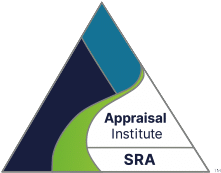Replacement Cost Value versus Actual Cost Value
Many insured property owners see the words often enough on their insurance policy, but what the real meaning is, remains for many unknown, unless they are persistent and ask their insurance agent.
Because I experience during my daily encounters with clients permanently that the knowledge about RCV and ACV is rather limited, I think writing a blog about that topic will be helpful.

So, here it goes:
Much like everything we buy, insurance comes with a lot of options. And if your property is insured for RCV or ACV is one of these options.
Let us define them:
Replacement Cost Value (RCV):
Let us assume the replacement cost value of your building is $500,000, which was properly established with an insurance appraisal. This means, in case of a total loss, it would cost $500,000 to rebuild your home and the insurance would pay up to $500,000 to replace your home.
Actual Cost Value (ACV):
Assuming the same amount of replacement cost of $500,000, a certain amount for depreciation is deducted, whereas depreciation is defined as the loss in value of a property over time. So lets assume your building is ten years old with a life expectance of 60 years this would equal a depreciation of approximately 17%. The ACV calculation is as follows:
RCV $500,000 minus 17% ($85,000) = $415,000
This means, in case of a total loss, the insurance would pay up to $415,000. But would that amount be enough to replace your home?
Are you willing to take the risk to get a lower premium? Because naturally, the RCV-coverage will cost more than the ACV-coverage.
And by the way: we were just talking about the dwelling portion, which is referred to as Coverage A; if you want your contents coverage (personal property) insured at RCV you need to request that.
So please, check your insurance policy and see if you are insured in the right way. And the same is true for condo owners: make sure that your HO6 policy is an RCV policy if you want to be insured for the full amount.
In case of a loss (partial or total) and you decide to replace your home, even if you are RCV insured, the ACV will catch up with you eventually, and here is why:
Most insurance carriers require the insurance adjusters to calculate the ACV regardless if the property owner is insured for RCV or ACV. Let us assume you had water damage in your home and the total loss after the deductible is $25,000. The insurance will not write you a check for that amount, but deduct depreciation and will pay you the ACV value, which would be $25,000 minus 17% depreciation = $20,750. This amount is enough to get the repairs started and if you can proof with the invoices from your contractor that the repairs did cost more than the ACV the insurance will pay up to the RCV of $25,000.
I hope that will help you to get a better understanding of these two insurance terms; feel free to leave me a comment or email me directly with questions.
Patricia Staebler, SRA, is a State-Certified General Appraiser in Bradenton, Florida, specializing in Insurance Replacement Valuation serving Collier, Lee, Charlotte, Sarasota, Manatee, Pinellas and Hillsborough Counties. She is also a Licensed Insurance Claims Adjuster.









So as a Roof contractor once I submit my invoice to my customers (home owners insurance company) for total work completed which will end up being the RCV total the insurance company will issue another check for the remainder of the RCV, minus customers deductible correct?
One other question, does the Home Owners Insurance Company come out and inspect the Roof work? That would be another Great opportunity to showcase Our work.
Thanks!
Mike